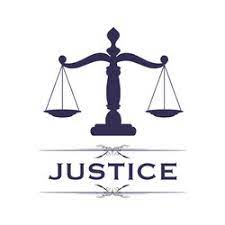
Justice
Justice
Justice encompasses the maintenance of fairness and equity in modern societies, involving the safeguarding of fundamental rights and entitlements for all. It can be categorized into several dimensions:
1. Social justice pertains to equitable wealth, opportunity, and privilege distribution, addressing socio-economic disparities through legal means, as advocated by Dr. B. R. Ambedkar.
2. Political justice involves the utilization of the judicial process to facilitate political power-sharing, exemplified by universal suffrage and reservation policies.
3. Economic justice focuses on equalizing economic opportunities, wealth distribution, and dignified living conditions, often through policies like fair wages and progressive taxation.
4. Distributive justice concerns the allocation of resources based on relevant criteria.
5. Procedural justice prioritizes fair processes in decision-making, emphasizing unbiased investigations and due process.
6. Substantive justice seeks fair outcomes beyond procedure, safeguarding rights not explicitly covered by existing laws.
7. Restorative justice aims to repair harm, involving communication and addressing the needs of victims and wrongdoers.
8. Retributive justice centers on punishing wrongdoers to ensure societal well-being, such as the death penalty for severe crimes.
9. Restorative justice focuses on rehabilitating offenders and aiding victims, emphasizing reintegration into society and victim assistance.
The Principle of Natural Justice mandates impartiality, requiring decision-makers to avoid personal interest, listen to opposing parties, and act without bias, ensuring fairness in judicial, quasi-judicial, and administrative proceedings.